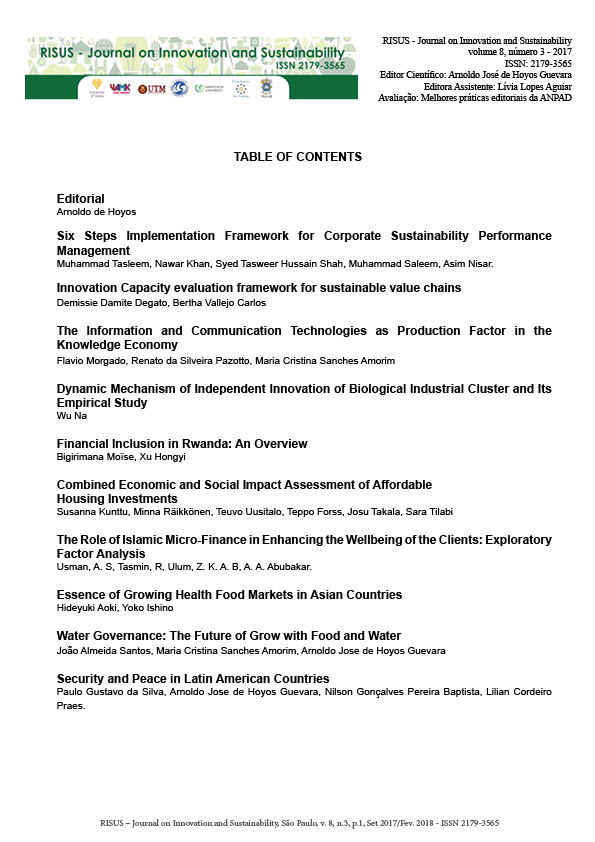WATER GOVERNANCE: THE FUTURE OF GROWTH WITH FOOD AND WATER
DOI:
https://doi.org/10.24212/2179-3565.2017v8i3p118-128Palabras clave:
Water governance, GDP, Food, Water shortageResumen
Forecasts for the next four decades are warning about shortage of water and food, particularly in developing economies. The demand for food will increase because of population growth, especially in developing economies. The problem is reinforced by the lack of water and reduction in food production. Today the consumption of water for food production is high because people do not realize that this is a scarce resource and that can definitely missing. We must create a policy for the management of water and that people are informed that it is not possible to use the feature without any control. The governance of water is important to establish ways and use control mechanisms and implementation of the resource in the various production processes. The waste during the manufacturing process is very high because: a) there is no control on the amount that should be applied to each type of agricultural product; b) the irrigation process is still done by equipment spraying water in large quantities; c) as water is still abundant for the current agricultural production in producing countries, there is no investment in machinery or equipment that can reduce water consumption; d) government authorities in developing countries do not plan and do not make any kind of control on the use of water or water governance; e) the food production process is carried out intensively and in large areas, it produces a single product and this requires large amounts of water.Descargas
Publicado
2017-09-01
Número
Sección
Papers
Licencia
This Journal is licensed under a Creative Commons Attribution-Non Commercial-No Derivers 4.0 International license.
1.The author (s) authorize the publication of the article in the journal;
2.The author (s) warrant that the contribution is original and unpublished and is not in the process of being evaluated in other journal (s);
3. The journal is not responsible for the opinions, ideas and concepts emitted in the texts, as they are the sole responsibility of its author (s);
4. The editors are entitled to make textual adjustments and to adapt the articles to the standards of publication.


